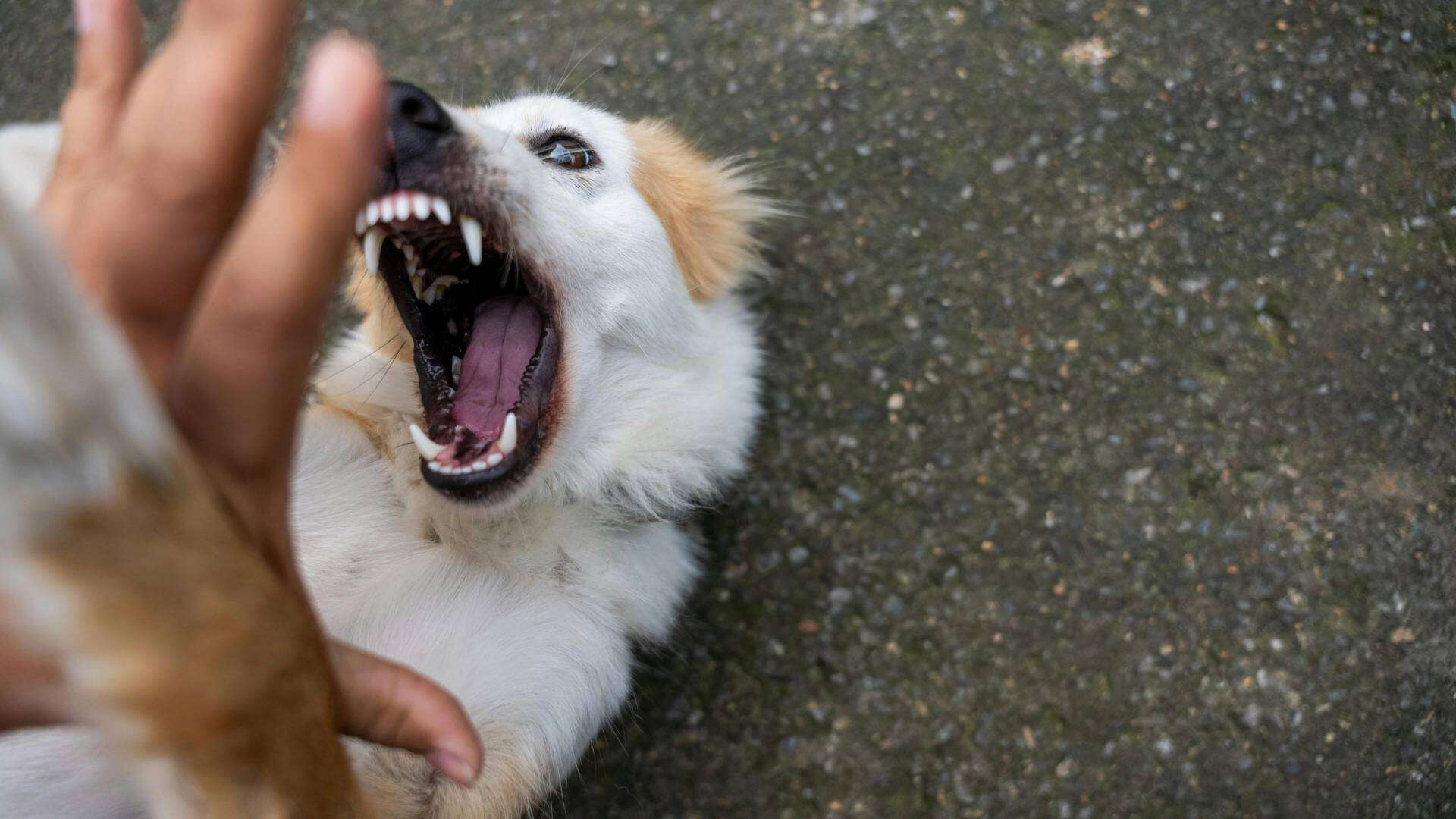Dog bites are horrifying experiences for owners and victims. Some owners do not expect their dog to become vicious, and they take every measure possible to help the victim and cover the costs of their injury. Others are not so responsible, and they may blame the victim for the dog’s behavior or refuse to acknowledge their fault as the owner to protect other people from their pet’s behavior. While South Dakota has no official dog bite law, there is a one-bite rule that holds owners liable if they knew or should have known their dog would be dangerous.
The one-bite rule in South Dakota can make it challenging for victims to recover damages if they do not know how to work within the rule’s provisions. A personal injury attorney in Sioux Falls, SD, can help you explore your options and fight on your behalf.
Alvine Law Firm offers personal injury lawsuit litigation for victims of dog bites. If you would like to learn more about our team, click here. Keep reading to discover our in-depth guide about dog bite lawsuits in South Dakota, and learn how to file a claim if you have been injured.
What Is the One-Bite Rule in South Dakota?
The one-bite rule in South Dakota only holds dog owners responsible for bite injuries if they had reason to believe their dog could be dangerous and harm someone. If the dog had a history of aggression or behaved aggressively, then the owner may be held liable. If the dog had previously bit someone, the owner would likely be held responsible.
The one-bite rule ultimately gives dog owners the benefit of the doubt in bite cases by assuming their dog may not have given them any reason to believe it would injure someone in the past, so they are not responsible for the first bite.
Can You Sue Someone for a Dog Bite in South Dakota?
Because South Dakota has no dog bite statute, victims must take legal action according to the state’s personal injury law (S.D. Codified Law 15-2-14.3). This sets a three-year statute of limitations on the time a victim has to file a claim against the dog owner for the injury.
However, because South Dakota is a one-bite state, this can make it difficult for victims to recover damages in their personal injury case. Under the one-bite rule, dog owners are only held liable if they had reason to believe their dog was dangerous or posed a threat to others.
For example, if a dog had a history of bites or behaved aggressively, then the owner would be responsible for the bite. But if the dog had no history of aggression and the bite occurred randomly, then it could be harder for the victim to hold the owner liable for their injury.
Dog Bite Lawsuits in South Dakota
Under South Dakota law, owners of domestic animals may be held liable under a theory of scienter (intentionally letting the dog bite) or in a case of negligence (not taking appropriate action to protect the victim).
Under a theory of scienter, the victim (plaintiff) must prove to the court that the dog owner had knowledge of their dog’s aggression and permitted it to attack them.
In cases of negligence, the plaintiff is not aiming to prove that the dog owner knew their dog was vicious and allowed it to harm them. Instead, they argue that the owner did not take reasonable and appropriate action to warn the plaintiff of the dog bite risk.
However, in cases where the dog chased, attacked, or killed another domestic animal (such as another dog) or poultry, S.D Codified Law 40-34-2 holds the owner responsible for damages and costs stemming from the loss.
In any case, because the defendant can always argue that they had no idea their dog would bite and therefore, had no way to warn the plaintiff, winning a dog bite injury lawsuit in South Dakota can be a challenge.
Working with a personal injury lawyer with experience in dog bite cases can help. Because they understand the common defenses dog owners use to defend themselves and their pets, they can build strong counter-arguments that demonstrate their responsibility and hold them accountable for the victim’s injuries and suffering.
Dog Leash and Restraint Laws in South Dakota
South Dakota does not permit animals to free roam. Some cities in South Dakota set additional leash laws to protect animals and citizens, and it is important to take local rules into account when building a dog bite case. The only time dogs are allowed off-leash in public is when they are in a designated off-leash area, such as a dog park.
Are Any Dog Breeds Banned in South Dakota?
No, under South Dakota Codified Law 40-34-16, local governments are not allowed to ban any dog breeds, but they are allowed to pass regulations relating to all dogs.
Furthermore, Senate Bill 75, passed on July 1, 2014, prohibits dog breed discrimination in court.
How Can a Lawyer Help With a Dog Bite Case?
Dog bites are one of the most common personal injuries in South Dakota, and the team at Alvine Law Firm takes them seriously. Every client is given unwavering support during their case, which includes covering all the details related to the incident. Your lawyer will consider:
- The events leading up to the injury
- Where the dog bite occurred
- The nature and extent of the injury
- The emotional impact
- Scarring, disfigurement or disability from the injury
- Premises liability and insurance requirements
- Owner responsibility
Discover Your Rights: Speak With a Sioux Falls Lawyer About Your Dog Bite
With proven experience and over 50 years of combined legal success, Alvine Law Firm can offer the dedicated support you need for your case. Your first consultation with us is always free. Visit our contact page or call 605-275-0808 to book an appointment with one of our lawyers in Sioux Falls, SD.
References
Codified Law 15-2-14 | South Dakota Legislature

